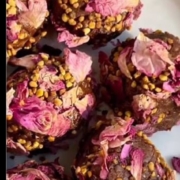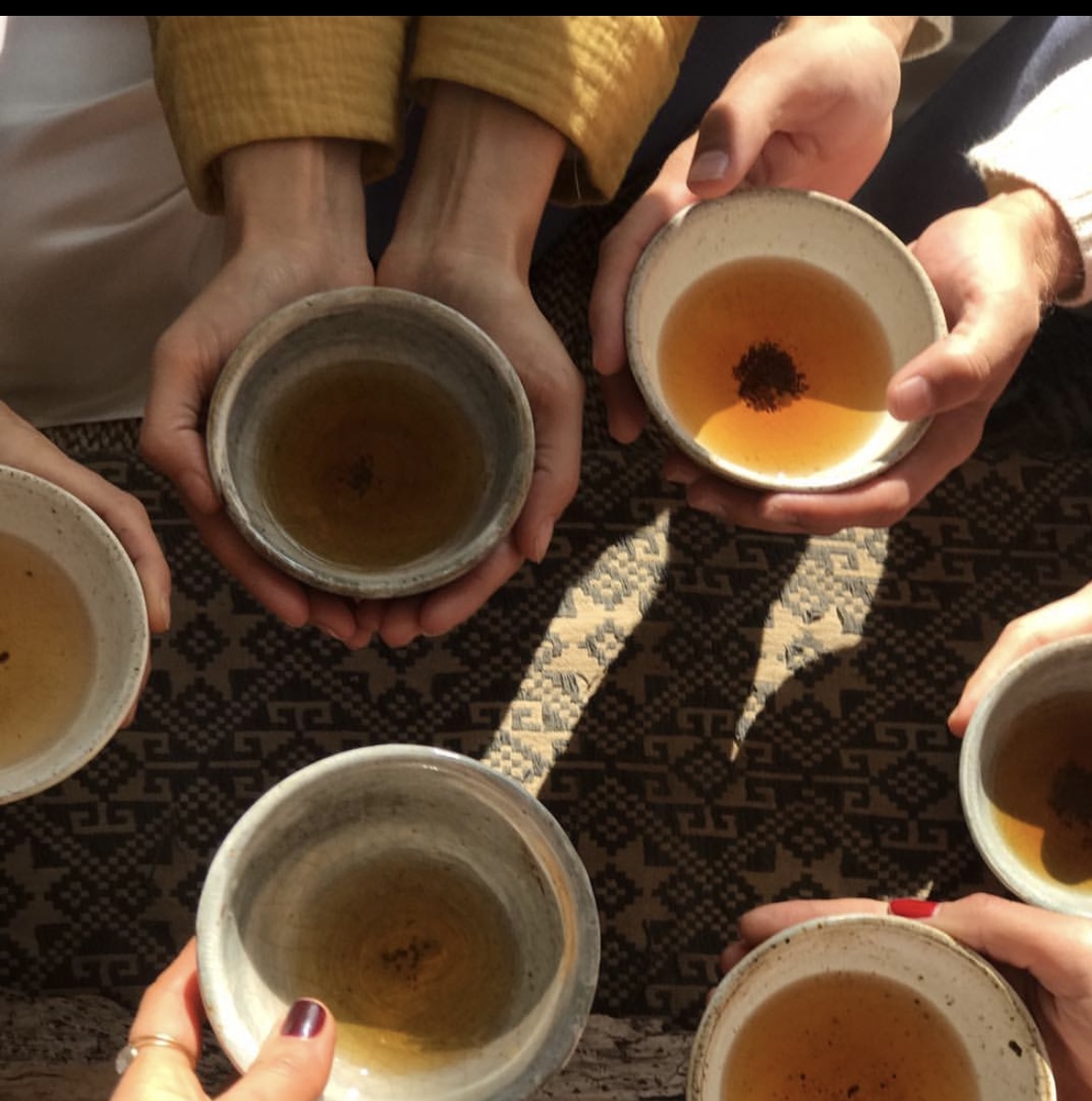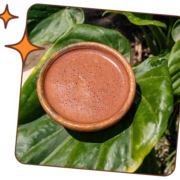UPCOMING EVENTS
Women’s Herbal Wellness Class Series
with Alicia Garza
Grounded Sound Baths
with Terrie Weaver

Fridays February 6th & 13th
5:45 pm
*************
VALENTINES DAY OFFERINGS:
Tea Ceremony: Connecting to your Heart
with Silvy Franco
Men’s Herbal Wellness Class
with Alicia Garza

February 14th ~ Valentine’s Day~@ 1pm
Edible Aphrodisacs
with Silvy Franco

February 14th ~Valentine’s Day~ @ 3:30pm-4:45pm
*************
Heart-Opening Cacao Ceremony
*************
Sound Healing- Opening the Heart
with Terrie Weaver

February 15th ~Valentine’s Evening~
2:30 pm-3:45 pm
*************
Conscious Kids Story & Tea Time
with Lakeja Baylor

3-Day Immersion: Reading the Body Immersion
with Margi Flint

October 23rd-25th : 10am-4pm
Hold your spot here









Spring Tonics
/in Herb of the Month /by Ashley DavisThis is my favorite time of year for wild-crafting! So many edible & medicinal plants light up the fields and forests- chickweed, dandelion, violet, cleavers, nettles, red buds, ramps and morels to name just a few. Did you know that even the invasive garlic mustard is a highly nutritious green that makes a great pesto? And that the apple and cherry blossoms that grace us with their beauty make a lovely cordial?
I love how Mother Nature provides us with the bitter and pungent flavors to help us detoxify our bodies and eliminate excess from winter. Many of the plants available in spring are lymphatics and alteratives (An alterative is an herb that gradually restores proper function to the body and increases overall health and vitality by supporting the ability of the body to eliminate waste through multiple channels of elimination (i.e., lungs, skin, liver, kidneys, lymph or bowels)- what used to be referred to as “blood cleansers”) Dandelion, cleavers, chickweed, violet, nettle, sassafras, burdock- all of these were used as spring tonics (aka blood cleansers) among Appalachians before the age of refrigeration and grocery stores.
While these traditions seem to have faded from popular culture over the past few generations, they remain strong among herbalists, folk healers, wise women and mountain-dwellers. And there is a resurgence of interest in learning these traditional practices. So for those of you who are curious about the wild nutrition that your backyard can offer, here are some recipes for you to play with this season…
Before you begin to forage, I have to emphasize the importance of proper plant identification. Dandelions, cleavers, violets and nettles are all relatively easy to identify, but if you are new to this, please consult a field guide or go with someone who can help you. Do not rely on the plant identification apps! I have found them to be woefully inaccurate.
VIOLET GELATIN
This is not the bright purple, boxed gelatin of your youth. This is an all-natural, low sugar, nutrient-rich treat.
Recipe & photo from: Homestead Lady
Ingredients
To Make Violet Tea
Directions
I made this yesterday with my 3 year old and it turned out great! We poured it into little heart-shaped molds. He was so excited this morning to bring his violet “jello” to school for lunch.
VIOLET SYRUP
Please note that honey syrups must be stored in the fridge for preservation.
Violet Syrup Ingredients
1 oz. freshly picked violet flowers
5 oz. water
organic sugar
To Prepare:
* Boil water and pour over the violet flowers.
* Cover and allow to steep for 4 hours.
* Strain into stainless pot and gently warm on the stove.
* Add 2 oz of sugar/honey by weight for each 1 fluid ounce of violet tea.
* Mix until the sugar is completely dissolved.
* Bottle. Shelf stable for 1 year.
Use violet syrup to sparkling water, teas, cocktails or as a sweetener for lemonade. It is a cooling, nutritive
SPRING GREENS SALAD
Note: only harvest wild greens from clean areas, at least 20’ from the road
Salad:
Dressing:
(This recipe makes dressing for more than one salad. Keep in the fridge for up to a week for more salads!)
Mix the greens, wild onions and grated carrot in a salad bowl. Whisk together all ingredients for the dressing. Add 3 Tbsp of dressing to the greens, tossing well. Sprinkle violet flowers over the greens and then serve.
WILD GREENS PESTO
Note: If you are using nettles in your wild pesto, you can blanch them for a minute or two to remove the sting before proceeding with the recipe below. I have found that the chopping action of the food processor is sufficient to break open the hairs and release the acid, but if you are not confident, blanching or steaming them will definitely do the trick.
Directions:
Add the garlic and seeds/nuts to the food processor and pulse to coarsely chop these.
Rough chop the greens and herbs and add them to your food processor. Add a splash of lemon juice to brighten the flavor and color. Start blending, adding olive oil, one tablespoon at a time until you have your preferred texture. If you want to make a pesto sauce you will need more oil. If you want a paste for pizza, use less oil. Flavor with salt, pepper and hard cheese. (Omit the cheese if you plan to freeze it, you can always add that later after thawing).
CLEAVERS INFUSION
Directions:
STINGING NETTLE SOUP
Ingredients
Method
Bring a large pot of lightly salted water to a boil. Prepare a large bowl of ice water. Wearing protective gloves, transfer the nettle tops into the boiling water. Blanch for 2 minutes.
Use tongs to lift the wilted blanched nettles out of the pot and transfer to the bowl of ice water to shock them. Strain in a colander.
Cut away and discard any large stems from the nettles. (This should be easier to do now that the nettle stingers have lost their sting due to the blanching.)
You should have 3 to 4 cups of blanched tender nettle tops and leaves for this recipe. Any blanched nettles not used at this point can be frozen for future use.
In a 6-quart soup pot, heat the olive oil on medium heat. Add the chopped shallots and celery and cook until softened, about 5 minutes. Then add garlic and sauté another minute or two.
Add the chopped potatoes, the chicken stock and bay leaf. If using unsalted or low sodium stock, add one teaspoon of salt. Bring to a simmer and simmer for 5 minutes.
Roughly chop the blanched nettles. Add 3 to 4 cups of the chopped blanched nettles to the pot. Add enough water to just cover the nettles and potatoes, 1 to 2 cups. Return to a simmer and simmer for 15 minutes or until the potatoes are soft and the nettles tender.
Remove the bay leaves from the pot. Add the fresh parsley. Using an immersion blender or working in batches with a standing blender, purée. Return to the pot and take off the heat.
Add salt to taste. Depending on the saltiness of the stock you are using, you may need to add at least a teaspoon or more to the soup. Add 1/2 teaspoon of freshly ground black pepper. Add lemon juice. Right before serving, swirl in the cream, sour cream or coconut milk. Adjust seasonings to taste.
Sprinkle with black pepper and garnish with a sprig of fresh mint to serve.
WILD ONION GRASS VINEGAR
To make an infused vinegar:
I could go on and on with more of these recipes, but time and space are limited. Dandelion wine will have to wait for another blog. If you want to play with more spring foraging, I highly recommend these two books:
Again, please be careful when identifying wild plants for the first time. Happy foraging!
Disclaimer: these statements have not been evaluated by the FDA. This article is for educational purposes only and is not intended to diagnose, treat or cure any disease.